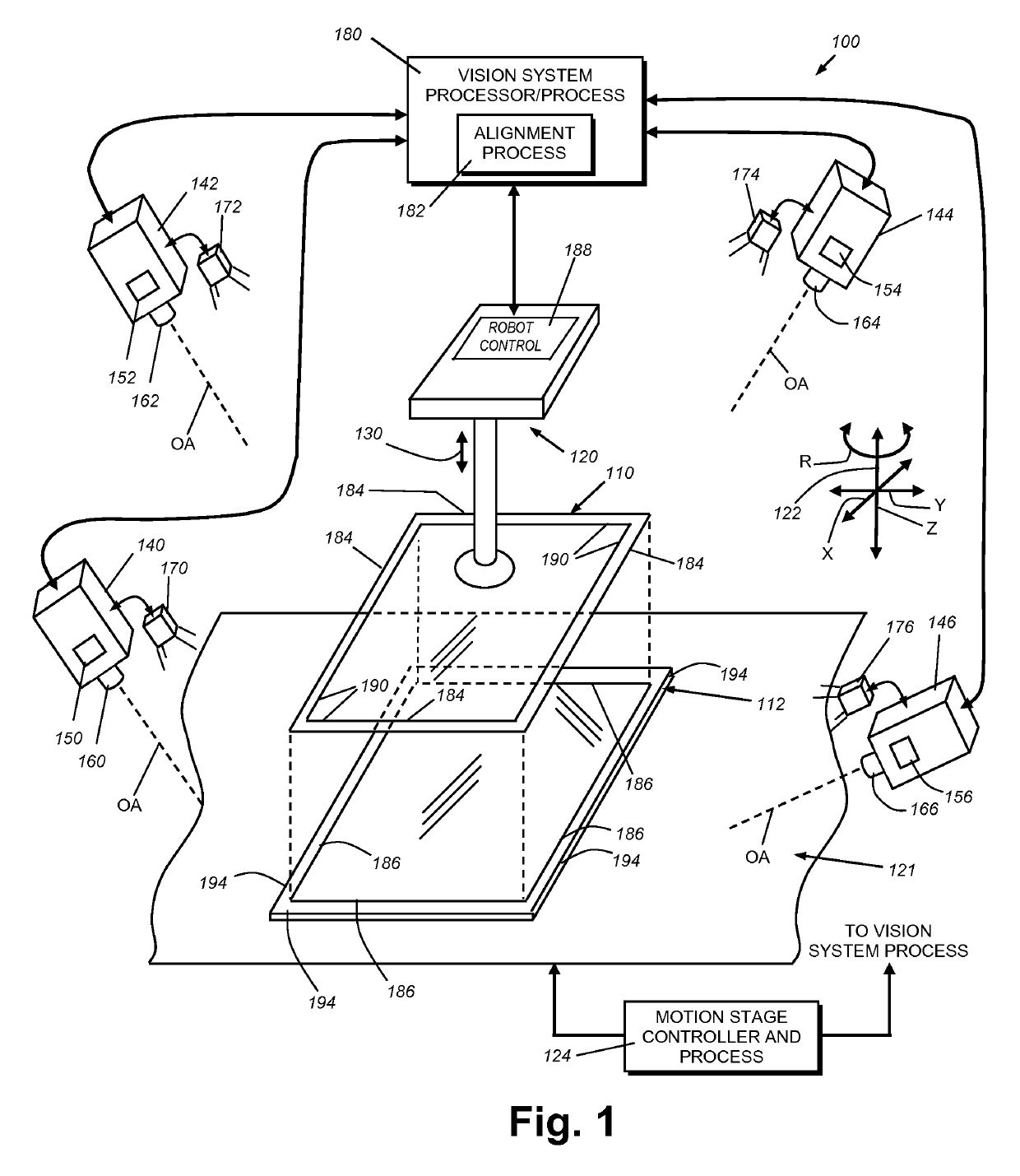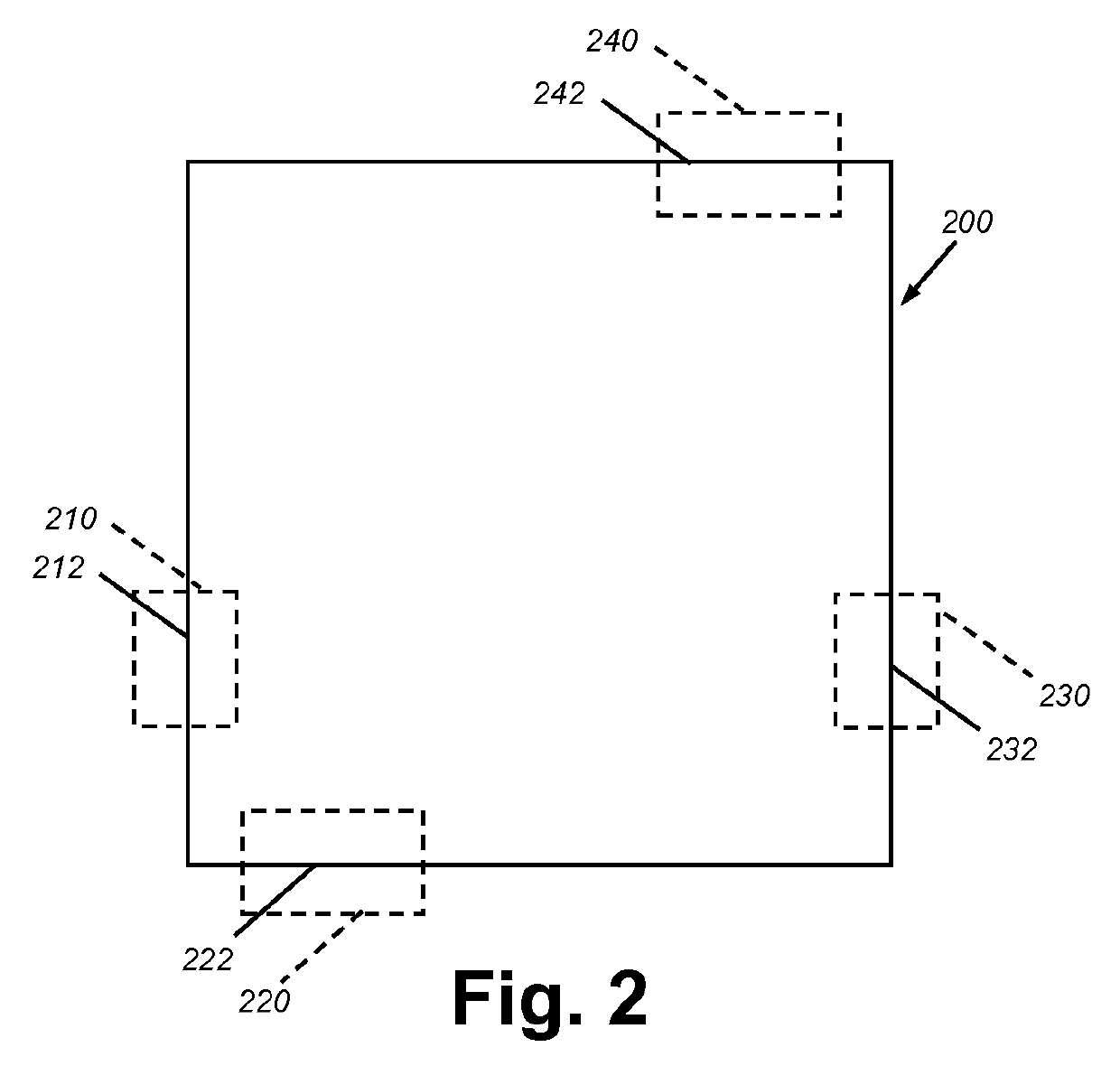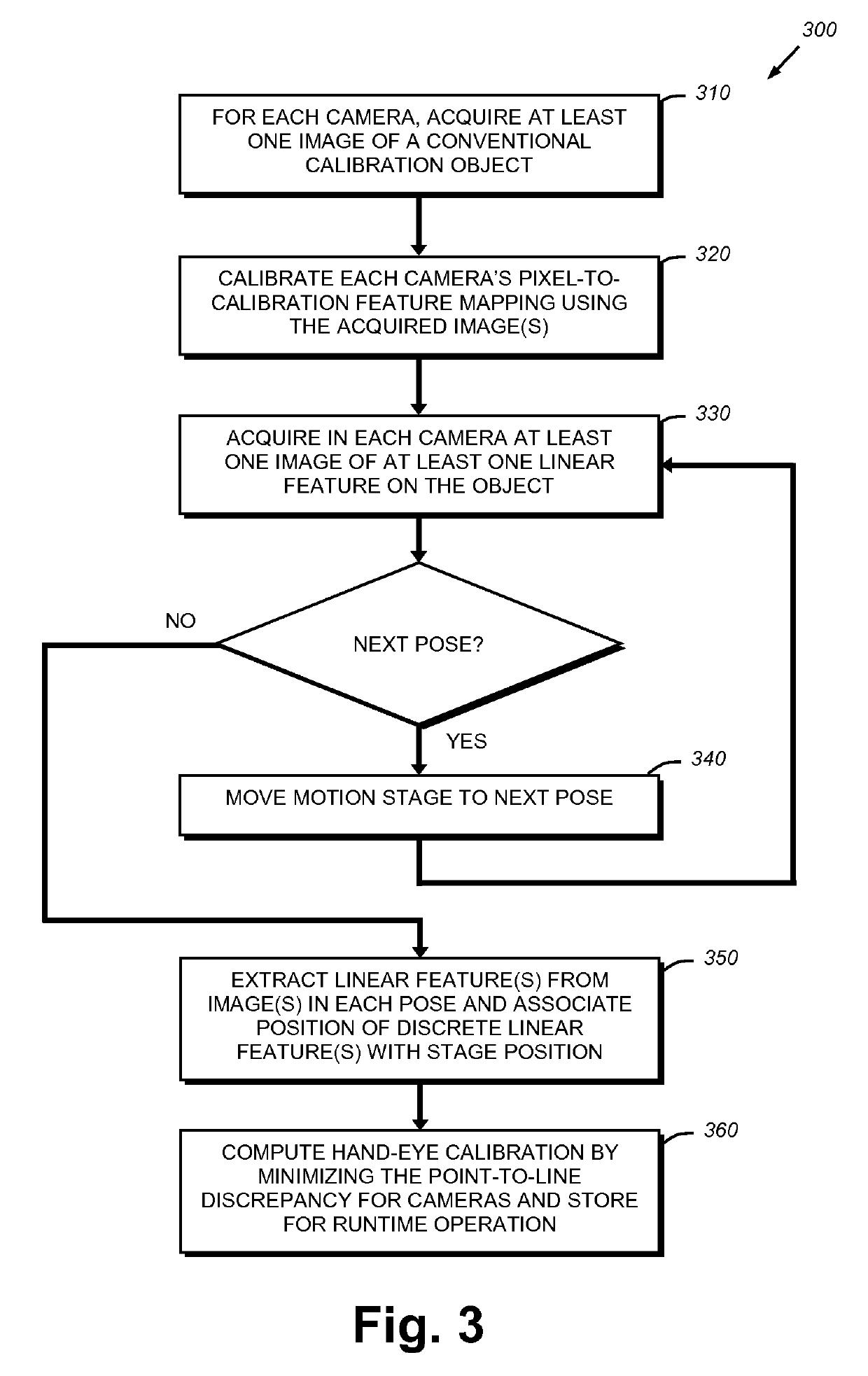System and method for performing vision system planar hand-eye calibration from straight line features
a technology of vision system and straight line features, applied in image analysis, image enhancement, instruments, etc., can solve the problems of increasing cost and setup time, and achieve the effect of reducing the dependence of the vision system and sufficient calibration accuracy
- Summary
- Abstract
- Description
- Claims
- Application Information
AI Technical Summary
Benefits of technology
Problems solved by technology
Method used
Image
Examples
Embodiment Construction
I. Hand-Eye Calibration, Further Considerations
[0020]Traditional hand-eye calibration, whether performed manually, or within a vision system, entails establishing correspondence between observed image feature positions and their expected physical positions, and minimizing the discrepancy between the observed positions and the expected positions. In the illustrative embodiment, the use of linear features, and the like, employs various aspects of traditional hand-eye calibration, but additional considerations are addressed. These considerations arise because of the differences between the calibration features available in traditional hand-eye calibration as performed in the prior art and the novel approach to calibration using runtime objects of manufacture and selected linear features thereon. These differences relate primarily to the type of correspondence, which in turn, results in different ways to compute and minimize the discrepancy between the observed data in the acquired imag...
PUM
 Login to View More
Login to View More Abstract
Description
Claims
Application Information
 Login to View More
Login to View More - R&D
- Intellectual Property
- Life Sciences
- Materials
- Tech Scout
- Unparalleled Data Quality
- Higher Quality Content
- 60% Fewer Hallucinations
Browse by: Latest US Patents, China's latest patents, Technical Efficacy Thesaurus, Application Domain, Technology Topic, Popular Technical Reports.
© 2025 PatSnap. All rights reserved.Legal|Privacy policy|Modern Slavery Act Transparency Statement|Sitemap|About US| Contact US: help@patsnap.com



